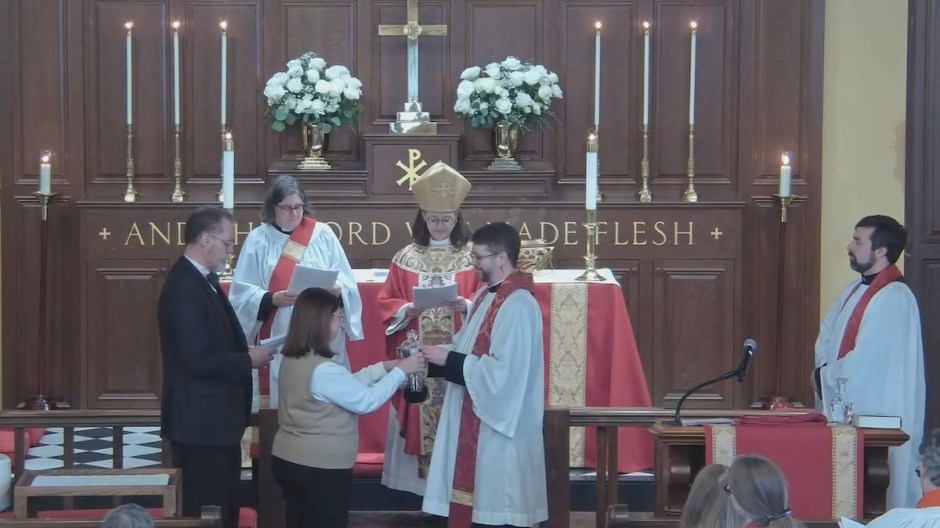Sermon for Saturday, February 14, 2026 || Celebration of New Ministry || Numbers 11:16-17, 24-30; Psalm 146; Romans 12:1-18; John 15:9-16
Greetings from the other side of the country. My name is Adam Thomas, and I am the rector of St. Mark’s Episcopal Church in Mystic, Connecticut. Yes, that is the place made famous by the 1980s coming-of-age film Mystic Pizza. And yes, there really is a pizza place named that; it’s around the corner from my church. I am so glad to be here for this celebration with you for three reasons. First, I got to escape the unprecedented run of single digit temperatures in New England. Second, three of my best friends from different phases of my life all live here somehow, and I’ve gotten to visit everyone. And third, I get to speak with you this morning about your new partnership in ministry with a friend I met half a lifetime ago, the Rev. Bret Bowie Hays.
Now, this sermon is not going to devolve into a roast of Bret. I promise I’m going to talk about God and church in a minute. But just so you know why I’m the one preaching today – besides his family, I’m probably the person in this church who has known Bret the longest. We met on the first day of orientation at Virginia Theological Seminary way back in the halcyon days of the summer of 2005. We became fast friends, bonding over our love for pizza, theological discourse, and Star Trek. We spent many a night in the dorms together at VTS, him watching Star Trek and me falling asleep watching Star Trek. Bret was a groomsman in my wedding; he’s godfather to my son; and he is one of those friends you can call up and chat to for an hour when you’re driving to a meeting at the diocesan office. After priestly ministry in Colorado, Massachusetts, and Florida, he has arrived here in California as your next rector. And I am so excited about the new partnership in God’s mission you here at Trinity Episcopal Church and Bret have begun together.
As you continue getting to know one another at the outset of this new ministry, I invite you to embrace three words for your life together. May God grant you the grace to make your ministry together faithful, collaborative, and renewing.
Continue reading “Faithful, Collaborative, Renewing”




